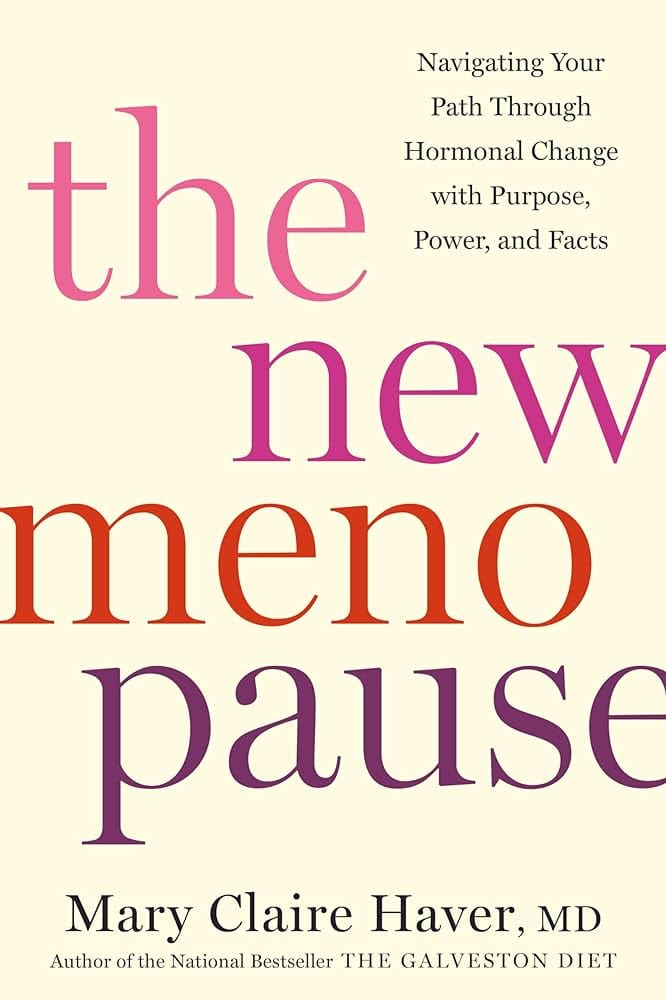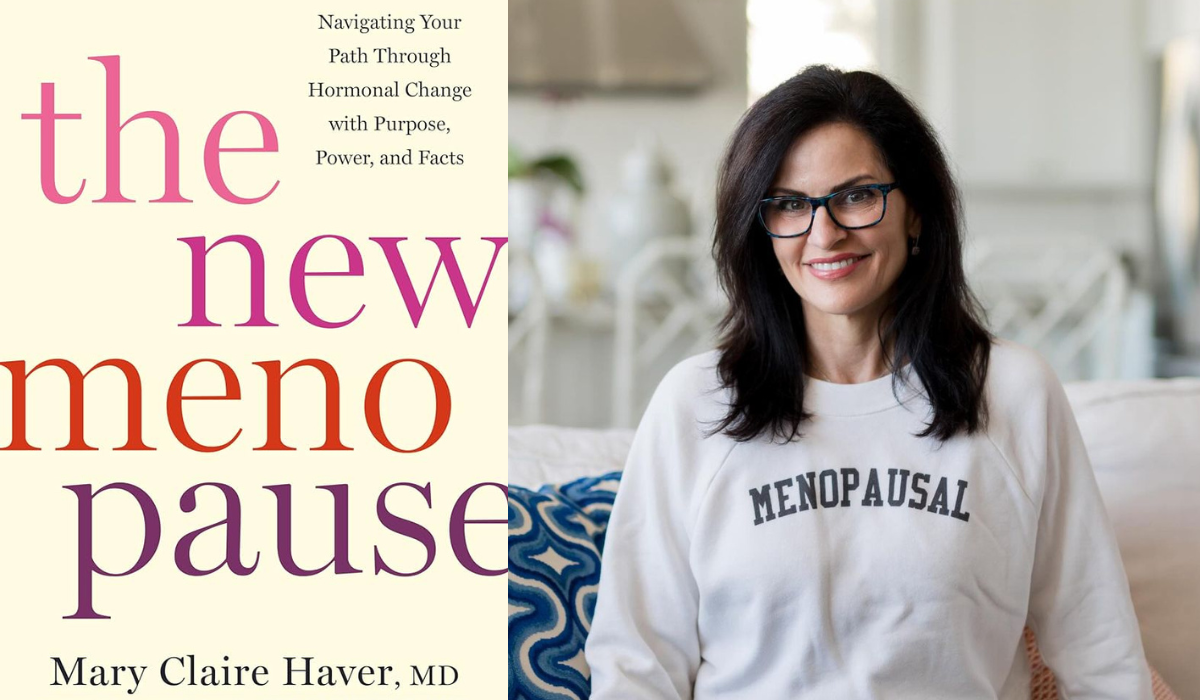Here’s What Dr. Mary Claire Haver and Her “Menoposse” Want Every Woman to Know About Her Health
If it seems like everyone is talking about menopause lately, it’s because we are.
From news headlines and bestselling books on the topic to a White House initiative focused on funneling more research dollars into studying the health impacts of this hormonal transition, menopause is having a moment. Or, as Ms. Magazine recently put it, “Menopause is fueling a movement.”
A major force behind this movement is a coalition of more than 200 clinicians who call themselves “The Menopossee.” Their mission: To push boundaries, challenge the status quo, and use their voices to force a change in how women going through menopause are cared for.
“We’re constantly in touch, sharing research articles and supporting each other,” says Mary Claire Haver, MD, one of the group’s organizers. “It’s the most beautiful thing—all of us working together to change the outdated narrative about menopause.”
The Sunday Paper sat down with Dr. Haver to hear more about how the menoposse came together and what she and her colleagues want women everywhere to know about their health in midlife and beyond.
A CONVERSATION WITH MARY CLAIRE HAVER, MD
There is a growing conversation about menopause, and it really does feel like a movement. Why do you think this is happening?
Menopause has been happening since women have lived long enough to go through it, which has been in the last 100 years or so. But now, social media—good and bad—has been a place for women to share their experiences and their stories. And all these women were like, Wait! We have to talk about this. Because we weren't talking about menopause until pretty recently. We weren't even discussing it in our doctors’ offices. And if a woman dared bring it up, nine times out of 10 they were dismissed or gaslit.
Gen Xers are coming into our power and we’re not willing to go quietly into the night—and we’re collectively recognizing, I'm not okay. And now that more women are realizing that so much of what we’re going through physically is due to this transition and these changes, they’re like, Well, what are we going to do about it now?And they’re not willing to take “nothing” for an answer.
There are a group of clinicians, yourself included, who are the self-proclaimed “menoposse,” spreading the truth about this transition and helping women navigate it. How did you come together?
The majority of us are boots on the ground clinicians. We're not sitting behind computers and crunching numbers. The “old menopause” reduced this transition to a few hot flashes and stopped periods, and didn’t acknowledge the bigger picture. For far too long, we defined the clinical treatment of menopause as the treatment of hot flashes.
Those of us in modern menopause care who are seeing patients and who are actually menopausal on our own are like, “No, menopause is much bigger than that.” Thanks to connections on social media and then meeting each other at conferences, we started banding together to support each other and our work, books, and social media platforms.
We were around 20-strong when an article came out in The Lancet claiming to promote an “empowerment model for managing menopause,” which included statements like this: “Most women navigate menopause without the need for medical treatments.” That article was filled with misstatements and outdated data, and we all went crazy. In a group effort, we wrote a rebuttal using solid medical references. (Ms. Magazine published it.) And it was just the most beautiful thing, all of us working together to change the outdated narrative.
That’s when we gave ourselves a name: The Menoposse. We’re constantly in touch with each other, sharing research articles and challenging each other and supporting each other.
Your book is called The New Menopause. What’s new about menopause?
Well first, we’re recognizing that the fallout from the WHI [the Women’s Health Initiative hormone therapy trials that ended early in 2002 due to safety issues] ended up over emphasizing the risks and under emphasizing the benefits of menopausal hormone therapy (MHT) for 20 years. I don't think every woman is going to choose hormone therapy, but I think they've been denied—and are too often still being denied—the choice and the conversation because of the damage the WHI did.
The new menopause says, “Here are the risks and benefits of hormone therapy for you. Here are the protective benefits you might miss if you choose not to do it.” We know that women on hormone therapy have lower rates of and deaths from cardiovascular disease, lower all-cause mortality, stronger bones, fewer urinary tract infections…the list goes on.
The new menopause also puts the spotlight on legislature and advocacy. Now that many of us have banded together as the menopossee, we have much more power than one of us screaming into the void.
For women who went through the menopause transition silently suffering—say, women in their 50s, 60s, and older now—what’s your advice for them?
It may not be too late for hormone therapy. The conversation I have with my patients no matter their age is this: Let’s see if you’re a good candidate for hormone therapy now. Vaginal estrogen should be for every woman, even those well past menopause, because it’s an essentially risk-free way to keep that tissue healthy.
And it is never too late to talk about nutrition, exercise, and stress reduction—and how that looks for us at this age. I feel like women really step into their power after menopause and are better able than ever before to put up boundaries and prioritize their own health. And many of us start to realize that if we don't do that, we’re going to end up where most women are heading which is the nursing home in greater numbers than our male counterparts.
The menoposse is busting menopause myths left and right on social media. What are some of the most pervasive myths that still exist about this transition?
One is that women are being told by their well-meaning healthcare providers—because of the propagation of misinformation—that they're not candidates for hormone therapy because of a family history of breast cancer or heart disease, for example, or a history of a blood clot. But there’s so much more nuance that’s needed when considering the use of hormone therapy, and women are being denied this treatment without good data to support it. There are actually very few things that make you an absolute contraindication for hormone therapy.
Another big myth is that hormone therapy should only be used to treat hot flashes. That’s ridiculous; the protective benefits of hormone therapy, especially in early menopause, are so unsung. So, if you're not being counseled on hormone therapy’s ability to protect your bones, your genitourinary system, and more, you’re not with the right provider.
There’s also a pervasive myth that if you’re on hormone therapy, there’s a certain age at which you have to stop. But we have no age data to support stopping hormone therapy by a certain age. So, if you've been on hormone therapy and you’re experiencing the benefits, you could potentially continue to stay on that therapy until you die. What you need is to work with a clinician who’ll do a risk-benefit analysis with you every year.

Please note that we may receive affiliate commissions from the sales of linked products.



